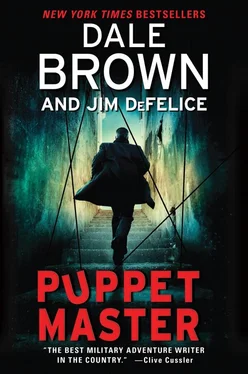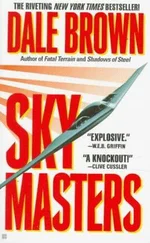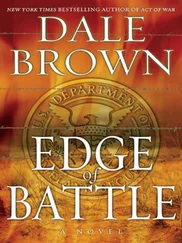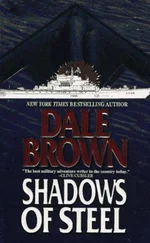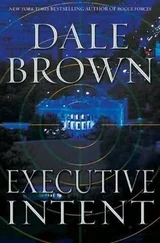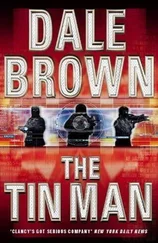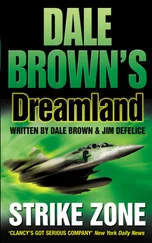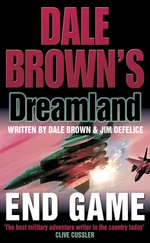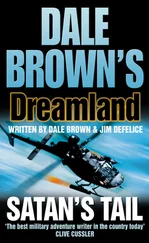“It’ll pass,” said Beefy, laying his hand gently on her back.
“Uh-huh,” was all Chelsea could manage, leaning her face into the sea’s spray.
* * *
Tolevi, standing in the cockpit of the speedboat, fixed his eyes on the light at starboard. It shone from the stern of a small fishing boat anchored off the Crimea Peninsula, maybe a half mile from shore. The boat was owned by one of their contacts; if there were any Russian patrol craft in the area, the light would be joined by another at the bow.
So far, so good. They’d gone nearly one hundred miles in the past three hours, setting off from Sinop, Turkey, a little village on the southern shore of the Black Sea. Tolevi ordinarily didn’t ship from there — his wares were too bulky and his shipments too large — but the CIA liked the village for a number of reasons, including its proximity to an airfield. Tolevi suspected the Russians were well aware of this and kept the village and its varied ports under constant surveillance, but he was unable to persuade Johansen. And as in all things, when the Agency decided on something, it simply refused to change its mind.
Agency. It was an immovable entity beyond anyone’s ability to control. Pigheaded and obtuse, and full of automatons with far less reasoning power, in Tolevi’s opinion, than those packed away in Chelsea’s boxes.
He had four of its agents with him, not counting the speedboat “driver,” whom Tolevi recognized as a contract worker from an earlier encounter. The man in charge of the CIA contingent — he insisted on being called Paul White, though that wasn’t even the name on his phony Turkish passport — was supposed to be taking orders from Tolevi, or at least consulting with him; that was the arrangement, as Johansen had made clear. But from the moment they’d met in Turkey, it was clear that White thought he was in charge.
Frankly, Tolevi wouldn’t have had him as a driver, let alone a team leader. He was brusque with everyone he met, and while he did speak Russian, he tried to make up with speed what he lacked in pronunciation. This only emphasized how poor his language skills were.
He didn’t sound much like a Turk either. Tolevi had no doubt their cover story would sink quickly if they were stopped.
Which was why his heart rate bumped up when a second light appeared on the fishing boat.
“I have Puppet Master,” announced White, who was sitting in the cabin just below. “Confirming we’re good.”
“Turn the god damned radio off!” yelled Tolevi. “We have a Russian patrol boat out there.”
“Where?” asked White.
“Why don’t you take a better look at the god damned radar and tell me? That’s what it’s for.”
* * *
Bozzone helped Chelsea to the bench in the open area aft of the speedboat’s cockpit and cabin. Her stomach was still queasy, but at least it was empty.
“Water?” he asked.
“No. What’s going on?”
“There’s a patrol boat or something. We got a warning.”
“Where?” asked Chelsea.
“Got me. Ukraine’s on our left.”
“To port.”
“Aren’t you the sailor,” scoffed Bozzone.
“How long?”
“Assuming we get past them and into the Kerch Strait, three more hours. Don’t sweat it; these guys probably do this all the time.”
* * *
Tolevi saw the dark outline of the Russian vessel about ten o’clock to port, long and dark and low against the black shadow of land behind it.
It was a big ship, probably a frigate.
Good thing, he thought. They won’t be interested in us small fry.
Except they appeared to be. “Picking up speed, coming our way,” said Porter, who was lookout on the port side. He was an ex-SEAL, which Tolevi found reassuring — if the frigate cut them in half, he’d be able to rescue everyone in the water.
Tolevi jammed the throttle, hoping for a few more knots. The choppy water was cutting down on his speed; he was having trouble sustaining fifty knots.
Still, that was good speed, and he was easily outpacing the frigate.
Wasn’t going to outrun its radio, though. There would be other patrols up in the straits.
Maybe they’d be interested, maybe not. It wasn’t clear that they’d seen them, after all.
“You want to talk to Puppet Master?” asked White.
“No, for crap sake. Tell them we’re good and get the hell off the radio. I can tell you work for the government,” Tolevi added sarcastically. “You’d never make it in the real world.”
Boston — same time
“Puppet Master, we are five-by. Signing off.”
“We copy,” said Johansen. He looked up from his station. “They’re good. Just coming up to Kerch Strait, between Crimea and Russia. Once they’re beyond that, there are very few patrols they have to worry about. Four hours from now, they’ll be in Berdyans’k, eastern Ukraine. Or Donetsk Republic, if that’s your preference.”
“There’s a Russian ship nearby,” said Massina, looking at the sitrep screen. It was a satellite map that plotted the team’s position against a constantly updated grid of military and police assets in the region. Touching the screen delivered specific information about the asset — in this case, the Russian guided missile cruiser Moskva. The cruiser was the pride of the Black Sea fleet, its flagship and by far the most powerful craft in the area. Even its smallest gun could blast the speedboat out of the water.
“They know it,” said Johansen. “They’re avoiding it. There are patrol boats in the strait as well. It’s nothing to get too excited about. Tolevi deals with this all the time.”
“He told Bozzone he hasn’t personally gone with a shipment on the Black Sea since before the war,” said Massina pointedly.
“It’s like riding a bicycle. You don’t forget.”
Kerch Strait, Black Sea — a short time later
They were past the big Russian ship, but, as Tolevi had expected, there was something else ahead, in the middle of the strait — smaller and quicker. A Rubin-class patrol boat, he suspected, capable of giving them serious problems.
Not as fast as he was, though. And not quite sure where he was yet, anyway.
Tolevi guided his speedboat eastward, heading in the direction of Tuzla Island, a spit of land that jutted out into the strait from Russia. The water there was shallow, not a problem for his craft as long as he was careful about it.
The patrol boat, which would have to be more careful, changed direction as well, heading toward them.
“They’re broadcasting to unknown vessel, asking it to identify itself,” said the CIA man handling the radios. “Maybe they do know we’re here.”
“Or maybe it’s a bluff,” said Tolevi. “We’re not helping.”
Would have been nice if Puppet Master IDed what we’re dealing with, Tolevi thought. Surely they could have done that. What the hell are they good for?
“Ignore them,” added Tolevi.
“Yeah, I wasn’t going to answer.”
The strait narrowed beyond the island, to a choke point less than three miles wide. There was a small Russian naval base near it. If the Russians were serious about stopping them, they could scramble boats from there to virtually blockade the strait.
Tolevi checked his gauges. He had enough fuel in the oversized tanks and auxiliary to get back to Turkey.
Scratch the mission, give it a couple of days before trying again?
Who knew what would happen in the meantime? More than two weeks had passed since he was last in Donetsk. The more time passed…
Читать дальше
